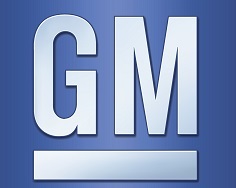UCS: GM's Zero Emission Vehicle Proposal Undercuts State Programs
 |
GM Proposal Would Undercut State Programs
Plan May Sound Good, But Devil in the Details
General Motors has proposed A National Zero Emission Vehicle (NZEV) program that would require automakers to sell a minimum volume of plug-in or fuel cell vehicles. While this may sound like an innovative idea, it could dramatically undercut programs run by states including California that are showing real leadership in cutting vehicle emissions.
State leadership on vehicle electrification is the reason there are now over 40 electric vehicle models available in the U.S., and we are expected to hit the 1 million EVs sold milestone this month.
GM's proposal would represent less than 5 percent of new vehicle sales in 2025 and is much weaker than what states have on the books. California electric vehicle sales are already at 6 percent today. Current requirements in California and nine other states require about 8 percent ZEV sales by 2025.
Advancing vehicle electrification is important but a national ZEV program is no replacement for the fuel efficiency and carbon emission standards we have on the books today. The vast majority of vehicles that will be sold over the next decade will be gasoline powered, and there are proven, cost-effective technologies available that will reduce gasoline costs for millions of Americans.Â
GM should be focused on meeting and beating existing standards and reject the Trump administration's proposed rollbacks which would
- result in an additional 2.2 billion metric tons of global warming emissions by 2040 that's 170 million metric tons in 2040 alone, equivalent to keeping 43 coal-fired power plants online;
- mean cars and trucks will use an additional 200 billion gallons of gasoline by 2040 that's as much oil as we've imported from the Persian Gulf since the standards were first finalized in 2010;
- cost consumers hundreds of billions of dollars in 2040 alone, consumers will spend an additional $55 billion at the pump if these standards are rolled back;
- reduce employment, economy-wide, by 60,000 in 2025 and 126,000 in 2035;
- reduce gross domestic product by $8 billion in both 2025 and 2035.
Union of Concerned Scientists, 2 Brattle Square, Cambridge, MA 02138 United States


